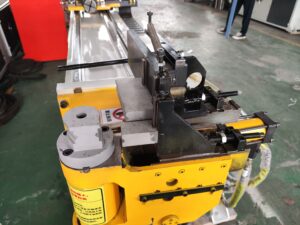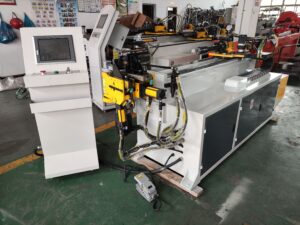Introduction
Pipe bending machine This article delves into the development technology of pipe bending machines, highlighting the key advancements and innovations that have shaped the industry.
The Dawn of Pipe Bending Machines
The earliest pipe bending machines were manually operated, relying on human strength and skill to shape pipes. These machines were simple in design, consisting of a die, a follower, and a handle for applying force. However, they were limited in terms of accuracy, consistency, and the range of pipe sizes and materials they could handle.
The Advent of Hydraulic and Mechanical Pipe Bending Machines
Hydraulic machines use fluid pressure to generate force, enabling them to bend larger and thicker pipes with greater accuracy.
CNC Pipe Bending Machines: A Leap Forward
The advent of Computer Numerical Control (CNC) technology in the late 20th century revolutionized pipe bending machines. CNC pipe bending machines use computer-generated instructions to control the process, ensuring high precision, consistency, and repeatability.

Modern Advancements in Pipe Bending Machine Technology
- All-Electric Pipe Bending Machines
All-electric pipe bending machines have gained popularity in recent years due to their energy efficiency, low noise levels, and reduced maintenance requirements.
- Hybrid Pipe Bending Machines
Hybrid pipe bending machines combine the benefits of hydraulic and electric systems, offering the power and force of hydraulic machines with the precision and control of electric machines.
- Mandrel Bending Technology
Mandrel bending technology involves inserting a mandrel into the pipe during the bending process to support the pipe’s inner wall and prevent deformation.
- Induction Bending Technology
Induction bending technology uses an induction coil to heat the pipe locally, making it more pliable and easier to bend.
- Software Advancements
Modern pipe bending machines are often equipped with advanced software that allows for 3D modeling, simulation, and offline programming.





